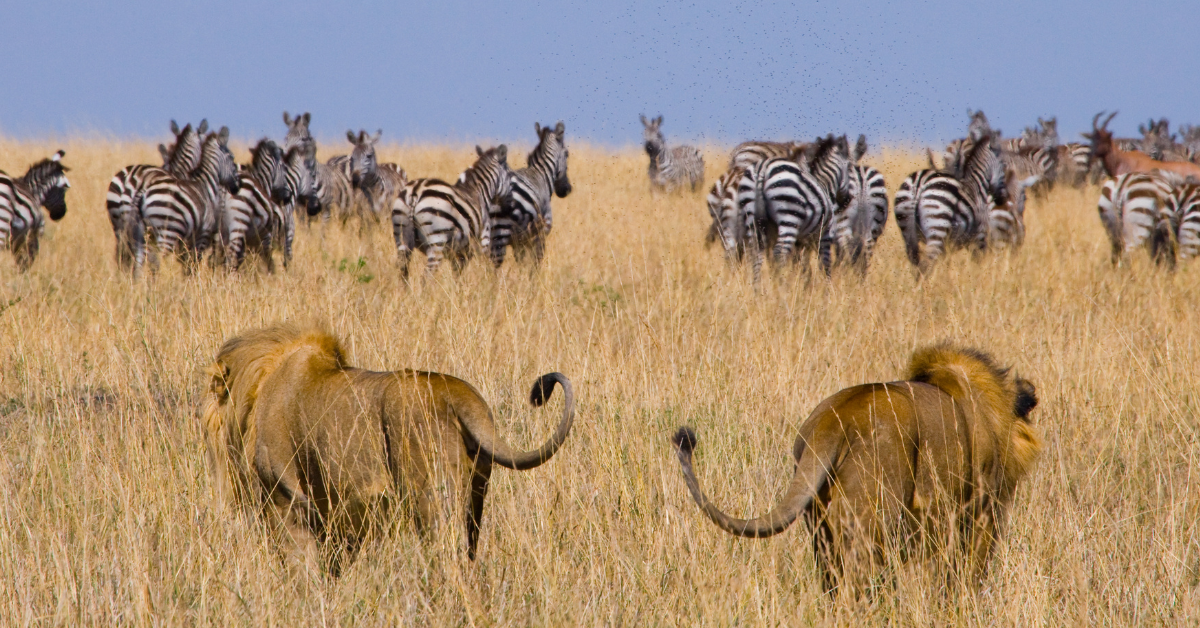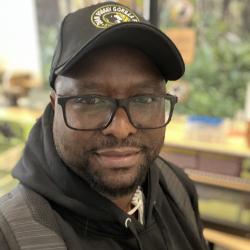
Trophy Hunting and Sustainability in Africa: A Nuanced Viewpoint
In the radiant glow of the African savannah, where majestic wildlife roam, a complex and deeply entrenched concern permeates - trophy hunting. Often, when one examines hunting within the African context, an imagery of severed animal heads and their lifeless bodies come to mind. However, to understand the full scope and dynamics of hunting in Africa, it is essential to see it not as a mere economic activity but as an intricate weave of historical, cultural, and socio-economic dimensions. Herein, I delve into the topic of trophy hunting within the broader context of the African wildlife economy, social inclusion, and the diverse viewpoints of the African people.
The Historical Context
Before the advent of colonialism, hunting in Africa was not just a means to an end or a strategy for survival; it was an integral part of various African cultures, a rite of passage, and a way to establish community bonds. As we navigate through the discourse of trophy hunting, it is important to reconcile the deep-rooted, intrinsic connection between African communities and hunting with the evolving global perspectives and attitudes towards conservation and animal welfare.
Socio-economic Aspects
Today, trophy hunting is a multi-million-dollar industry, contributing significantly to the economies of several African nations. It creates jobs, fosters community development, and generates revenue for conservation financing (Lindsey et al., 2007). But like any other economic activity, it comes with its own set of challenges, including sustainability issues and ethical conundrums. Sustainability in this context transcends beyond ecological balance. It encompasses providing lasting economic opportunities for local communities, fostering social inclusion, and preserving the rich diversity that Africa harbours (Thomsen et al., 2022). For local communities who have lived in harmony with the wildlife for generations, trophy hunting offers both opportunities and dilemmas. They stand at the intersection where tradition meets modernity, where the necessity intersects with ethics.
A Wider Audience: Stakeholder Engagement
To forge a path forward, a comprehensive stakeholder engagement process is paramount. Policymakers, academics, international communities, investors, and local communities must come together for an ‘indaba’ to discuss, debate, and deliberate on the myriad dimensions of trophy hunting (Mitchell et al., 2021). As we navigate this complex discourse, it becomes imperative to engage with the wider audience. Each stakeholder would contribute a unique perspective to the discussion, and it is through collaborative dialogue that sustainable solutions can emerge beyond insults and polarity. Academics can provide research-based insights into the ecological impacts of trophy hunting and propose models for sustainable wildlife management (Dickman et al., 2019). Whereas policymakers can craft regulations that ensure the welfare of both the wildlife and the communities that depend on them. International communities and investors can offer support in terms of resources and expertise, aiding in the development of infrastructure and technologies that promote conservation (Clark et al., 2023). Meanwhile, the local communities, the custodians of African wildlife, can share their indigenous knowledge and wisdom, their experiences, and their aspirations, helping to shape policies that are both inclusive and equitable (van Houdt et al., 2021). It is high time that stakeholders concerned with trophy hunting cooperate and work together for the sake of sustainability.
Reimagining Trophy Hunting: A Call for Reform
Towards the latter part of this discourse, we find ourselves faced with difficult but essential questions. As we stand at the crossroads of tradition and modernity, we must ask ourselves: is it time to reimagine trophy hunting? How can we ensure that this practice evolves to become more ethical and inclusive? First and foremost, the industry needs to undergo substantial reforms that align it with the principles of sustainability and ethical treatment of animals. Governance system and regulations needs strengthening to be more rigorous, with robust monitoring mechanisms in place to prevent overexploitation and guarantee the welfare of the animals (Muposhi et al., 2016). Further, social inclusion should be at the heart of these reforms, empowering local communities to have a greater say in the management and conservation of wildlife resources (Ullah & Kim, 2020). These communities have a rich heritage of coexisting with wildlife, and their wisdom and insights can be a guiding light in shaping a more sustainable and ethical trophy hunting industry (Thomsen et al., 2022).
Next, we come to a deeply contentious issue – the very nomenclature of ‘trophy hunting’. In the current global context, where there is an increasing emphasis on conservation and animal welfare, the term ‘trophy hunting’ has garnered a negative connotation, often associated with the brutal killing of wildlife species for sport. Thus, it becomes pertinent to consider a change in terminology, one that resonates with the evolving perspectives on wildlife conservation and animal ethics.
Changing the name of trophy hunting to something like "sustainable safari off-takes" or "harvesting" could potentially alter perceptions, especially if it is paired with genuine efforts to make the practice more sustainable and conservation-focused. This could be more representative of an industry that aims to harmonize economic gains with ecological balance and social inclusion. In my next piece, I will have a deep dive into this aspect of nomenclature and the possible positive impact on perception as well as the negative impact or skepticism on the subject.
A Future Envisioned
In conclusion, the conversation around trophy hunting in Africa needs to evolve, considering the multi-faceted connections between humans and wildlife. By fostering a dialogue that encompasses various stakeholder perspectives, we can hope to carve a future where trophy hunting transforms into an activity that respects the sanctity of life, promotes community development, and fosters ecological balance for sustainability.
As we reflect on this inevitable transformational trajectory, let us hold close to our hearts the rich tapestry of African cultures, the majestic wildlife that graces its lands, and the vibrant communities that call it home. Together, we can forge a future where humans and wildlife coexist in harmony, where tradition meets modernity, and where Africa leads the way in showcasing a model of sustainable and ethical wildlife management to the world.
Victor K. Muposhi is an AWEI Fellow. He is affiliated with Botswana University of Agriculture and Natural Resources, Africa Leadership University, and Chinhoyi University of Technology, Zimbabwe.
References
Clark, D. A., Brehony, P., Dickman, A., Foote, L., Hart, A. G., Jonga, C., Mbiza, M. M., Roe, D., & Sandbrook, C. (2023). Hunting trophy import bans proposed by the UK may be ineffective and inequitable as conservation policies in multiple social-ecological contexts. Conservation Letters, 16(2). https://doi.org/10.1111/conl.12935
Dickman, A., Cooney, R., Johnson, P. J., Louis, M. P., & Roe, D. (2019). Trophy hunting bans imperil biodiversity. In Science (Vol. 365, Issue 6456). https://doi.org/10.1126/science.aaz0735
Lindsey, P. A., Roulet, P. A., & Romañach, S. S. (2007). Economic and conservation significance of the trophy hunting industry in sub-Saharan Africa. In Biological Conservation (Vol. 134, Issue 4). https://doi.org/10.1016/j.biocon.2006.09.005
Mitchell, C. D., Bleich, V. C., Bowyer, R. T., Heffelfinger, J. R., Stewart, K. M., & White, P. A. (2021). A Call for More Nuanced Dialogues About Trophy Hunting. Journal of Wildlife Management, 85(3). https://doi.org/10.1002/jwmg.22017
Muposhi, V. K., Gandiwa, E., Bartels, P., & Makuza, S. M. (2016). Trophy Hunting, Conservation, and Rural Development in Zimbabwe: Issues, Options, and Implications. International Journal of Biodiversity, 2016. https://doi.org/10.1155/2016/8763980
Thomsen, J. M., Lendelvo, S., Coe, K., & Rispel, M. (2022). Community perspectives of empowerment from trophy hunting tourism in Namibia’s Bwabwata National Park. Journal of Sustainable Tourism, 30(1). https://doi.org/10.1080/09669582.2021.1874394
Ullah, I., & Kim, D. Y. (2020). A Model of Collaborative Governance for Community-based Trophy-Hunting Programs in Developing Countries. In Perspectives in Ecology and Conservation (Vol. 18, Issue 3). https://doi.org/10.1016/j.pecon.2020.06.004
van Houdt, S., Brown, R. P., Wanger, T. C., Twine, W., Fynn, R., Uiseb, K., Cooney, R., & Traill, L. W. (2021). Divergent views on trophy hunting in Africa, and what this may mean for research and policy. In Conservation Letters (Vol. 14, Issue 6). https://doi.org/10.1111/conl.12840
-

Dr Victor Muposhi
Research Associate
We support the free flow of information. Please share:
More content
-

What Foot and Mouth Disease-free means for South Africa’s game meat trade
Ms Lydia Daring Bhebe…Explore the latest developments in South African provinces achieving and maintaining Foot and Mouth Disease (FMD) free status…
Articles -

The world wildlife trade regulator is 50 – here’s what has worked and what needs to change
Daniel Challender…Most countries implement Cites, the Convention on International Trade in Endangered Species of Wild Fauna and Flora as…Articles -

Enabling Sustainable Wildlife Trade
Prof Francis VorhiesEnabling sustainable wildlife trade is a key policy measure for growing Africa's wildlife economy. In this respect, CITES…
Articles -

Has CITES become too complicated to be effective?
Prof Francis VorhiesGovernments agreed to the text of CITES in the 1970s, which is quite straightforward. However, the agreement’s implementation…
Articles -

From poachers to providers: Can Africa's wild meat market save wildlife?
Dr Wiseman NdlovuHave you ever considered how wild meat could be more than just a cultural staple but also a…
Articles -

As a fellow of the African Wildlife Economy Institute (AWEI), I am excited to attend the upcoming 3rd…
Articles -

A theory of change to improve conservation outcomes through CITES
Dr Michael 't Sas-Rolfes…Here we articulate the implied theory of change (ToC) underpinning the design and operation of CITES (Convention on...
2025Research -

Wild Meat Value Chain Integration Systems: Opportunities for Value Chain Formalisation and Scaling in Africa
Dr Wiseman Ndlovu…Establishing a legal, safe and sustainable wild meat sector promises to potentially reduce demand for illegally sourced meat...
2025Research -

AWEI's 2024 Wildlife Economy Dialogue Series
Ms Emily TaylorRediscover 2024: A year of insight and inspiration
In 2024, AWEI proudly hosted three ground-breaking dialogue series in…
Articles
Get updates by email
Through impactful research, stakeholder engagement, and professional development, AWEI is supporting the wildlife economy across Africa. Please subscribe for occasional updates on our work and forthcoming events.
Sign up for a quarterly dose of AWEI insights
In a complex and changing world, AWEI generates strategic ideas, conducts independent analysis on wildlife economies, and collaborates with global scholar-practitioners to provide training and expertise for biodiversity conservation, climate resilience, and inclusive economic opportunities in Africa.
